Description
Religious Humanism
Vol. 1, No. 1, July 2000
Before writing editorial of this issue, I would like to draw attention of our readers/scholars that
we are restarting our journal “Global Religious Vision” from Vol. I, No. 1 instead of Vol. II No. 1 due to delay RNI registration number. In our earlier volume 1999, we have discussed four important issues viz. Human Values, Social Charity, Religious Positivity and Art and Religion. In our forth coming volume (2000-2001), we would like to focus on another four important issues, viz., Religious Humanism, Concept of Sin, Science and Spirituality and Religious Challenges in
21st Century.
In this issue, we have presented a number of research papers on theoretical conception and practical implication of humanistic approach in global religious perspective. Humanism is a continual effort on the part of man to redeem himself as a creature of rich potentiality—an endeavour that is directed towards making man in its most comprehensive sense. In all phases of historical development, humanism has had to reckon with forces or factors that have been subversive of its characteristic thrust towards the betterment of the human condition. Humanism has been so closely identified with the temper and mode of thought of contemporary man that our age may be regarded as an age of humanism. The history of humanist philosophy is long and involved, and the term ‘humanism’ continues to entertain several and diverse connotations.
In the East, the essential principles of humanism were first preached and practised by the Buddha although humanistic approach can be seen in earlier religious scriptures—the Vedas, the Upanishads, the Ramayan and the Mahabharata. In the early part of the Buddha career, he enjoyed the sweetest fruits of life in the royal palace at Kapilavastu. But when he realised the utter futility of all that, he renounced worldly pleasure and went to a forest to live an austere life of meditation and strict asceticism. On gaining enlightenment, he realised that pain is the fundamental fact of the universe. Out of ignorance is born craving and out of craving pain. Man, caught in the cycle of birth and death, is subject to constant suffering. The layout is the four-fold path: right speech, right conduct, right thought and right deeds. Compassion or tenderness is the core of Gautama’s humanism. He is rightly called ‘the ocean of compassion’ or ‘daya sâgara’. His compassion was so great that he prayed not for the realisation of God but for the devotion of his life to the service of the sick and suffering humanity. In fact, the gong-note of nishkâma karma yoga that we hear in the Bhagavadgita is but an echo of Gautama’s preaching of selfless love.
The appeal of the humanism by the medieval Hindu saints and later that of Islam and Sikhism, raised voice against the corrupt and degraded life of man associated with and brought about by the rigid system of Hindu religion. These humanisms were mainly attempts to elevate the down-trodden and they preached the brotherhood and equality all men and pleaded for the creation of a casteless society. At a time, when men were steeped in intolerance and sunk in superstition and when religion was reduced to caste distinctions, there arose in different parts of India saints who boldly tried to remove social inequalities and injustices: Jnanesvar and Namdev in Maharashtra, Narsi Mehta in Gujarat, Chaitanya in Bengal, Kabir in Uttar Pradesh, Vallabhacharya in Andhra, Basavasvara and Akka Mahadevi in Karnatak and others. All these infused a new faith into the hearts of man by preaching devotion, love and kindness. They believed that since the same God has made all men, we should not divide the brotherhood of men into distinctions of casts and creed. Thus, we find that all these medieval saints preached the brotherhood of man and Fatherhood of God.
Modern India has also produced several humanists thinkers. The humanism of Raja Mohan Roy was essentially a part of his fight against the evil aspects of Hinduism. Service of mankind was one of Roy’s primary loves and he even contemplated a universal religion which, he believed, would be embraced by all mankind. Gandhi is called humanists for both loved man as they would love God himself. In fact, he saw God in man and so proclaimed that the worship of God lay essentially in the service of mankind. His humanism had a profound mass-appeal because of his dedicated devotion to the cause of the down-trodden. Jawaharlal Nehru, one of the chief architects of modern India, was another great humanist who always stood for the common man and made his entire life an unceasing struggle for the achievement of dignity and happiness for men. However, Dr. Radhakrishnan believed in spiritual or metaphysical humanism.
The origins of humanism in the West are in Hellenic thought which has led to the high valuation of the possibilities in men. The earliest humanists were sophists who turned their attention from ontological and cosmological problems to the problems of Man and his conduct and thus proclaimed the intrinsic importance of Man. Socrates prevented the sophistic idea of the greatness of human personality from degenerating into narrow subjectivism by arguing that objective standards of truth were not incompatible with the individualism of the Sophists. The quintessence of his thought lay in his firm faith in human personality as the fundamental reality whereas all social and political institutions were at best aids to human development. Right knowledge ought to lead man to right action, and right action to unsullied happiness. However, Plato advocates the development of man’s highest faculties, and symmetry of life, by which he means the establishment of proper balance between reason, spirit, and desire. Man arrives at virtue when reason controls and guides him to knowledge. Thus, we find that both Socrates and Plato make clear thinking, right perception and right action the centre of their ethical teachings. Reason, according to Aristotle, is man’s highest attribute and his glory; and man must be viewed as man, neither as angel nor as devil. So, we find that humanistic ideas have formed the core of the teachings of the greatest of thinkers of ancient Greece, like Socrates, Plato and Aristotle. The ancient Greek humanism conclusively shows that they had profound respect for man.
The second stream of ancient humanism is to be found in the first flush of Christianity and the person of Jesus Christ, an ideal humanist, who clearly declared to the Hebrew world that Sabbath was meant for man and not the other way round. But the essentially humanistic teachings of Christ were soon practically ignored and forgotten and the dignity of human personality was almost entirely forgotten till the time of the Renaissance. It was during the period of the Renaissance that man again became the centre of values and an end in himself. Human freedom became the ideal of man. Renaissance humanism was an intellectual impulse, a cultural and educational programme for the moulding of a desirable type of man in the fashion of the man glorified in the classics, which revealed a magnificent civilisation built by the ancient Greeks and Romans. This turned the Renaissance man’s attention from the problem of what might become of man after death to the question of how best he could make his earthly existence happy. The most distinctive feature of Renaissance humanism is, of course, its classicism. This trend is clearly manifest in Petrarch, its inaugurator and the prototypal embodiment of the rising zeal for classical study. Petrach, himself a moral philosopher, believed that the sole aim of philosophy ought to be to teach the art of living well and happily. He was followed by a veritable host of humanists such as Boccaccio, Salutati, Bruni, Poggio, Pomponazzi, Lorenzo Valla, Ficino and Mirandola—to mention only a few of
them. Anti-scholasticism and anti-medievalism are the two other important characteristics of Renaissance humanism.
But in the nineteenth century, humanism received a death-blow at the hands of Naturalism according to which physical and chemical forces constituted the whole reality and man only a by-product and then at the hands of Absolutism which reduced man to a shadow of the Absolute. Both Naturalism and Absolutism denied the importance of human personality.
In the later half of the 19th Century, F.C.S. Schiller (1864–1937), the German philosopher, popularised his version of Pragmatism as humanism. He accepted the pragmatic criterion of truth. Human experience is essentially dynamic and is the sole criterion of truth. Trans-empirical or non-human truth is meaningless. Schiller, a modern Sophist, believed that the Protagorean adage, “man is the measure of all things”, was the starting point of all philosophic wisdom. The primary aim of Schiller’s Pragmatist humanism is to ‘rehumanise’ philosophy, which should impel philosophy, to undertake its highest task, the service of man. John Dewey (1859—1952), another leading exponent of the Pragmatist school of philosophy, wants to retain the term ‘God’. He points out that religion helps man with courage and zeal so necessary to combat obstacles and gain serenity and poise.
Naturalistic humanism, also called Scientific humanism, has gained much popularity in the contemporary world. It repudiates all forms of super-naturalism and holds that man is a wholly natural creature whose well-being rests on his own efforts and not on transcendental support. Corliss Lamont, one of the chief exponents of Naturalistic humanism, says, human happiness is its own justification and requires no sanction or support from super-natural sources; that in any case the super-natural, usually conceived of in the form of heavenly gods or immortal heavens, does not exist; and that human beings, using their own intelligence and co-operating liberally with one another, can build an enduring citadel of peace and beauty upon this earth.
It is true that no people has come near to establishing the ideal society. Yet, Humanism asserts that man’s own reason and efforts are man’s best and indeed, only hope that man’s refusal to recognise this point is one of the chief causes of his failures throughout history. In times of confusion and disintegration like the present, men face the temptation of fleeing to some compensatory realm of make-believe or super-natural solace.
Realistic humanism insists primarily on devotion to ideal ends which involve a root-and-branch of transformation of all social institutions which are not consistent with the ideal of human good. Bertrand Russell may be taken as a representative of this branch of humanism. While on the one hand, he pleads for the preservation of man’s respect for truth, beauty and perfection in life, on the other hand, he wants men to be united with the tie of a common good and work for the reconstruction of our social institutions with a view to removing human suffering and inequality. Pt. Jawaharlal Nehru is the principal representative of Realistic humanism and for him Nature is a stage for creative action. Every generation of men needs a religion of its own, particularly when it is interpreted to mean a social organ concerned with men’s place in the cosmos and his role in it. But religion has to be dynamic and changes its essentials with changing times if it should serve the purpose for which it is meant. Humanism is a philosophy of vigorous optimism. It is profoundly dynamic since it is always ready to take cognisance of the changing and growing nature of knowledge.
Contents
| Editorial | 1 | |
| 1 | Humanism: An Over-View | 5 |
| G.B. Gupta | ||
| 2 | What is Religious Humanism—A Baha’i Viewpoint | 17 |
| Dr. A.K. Merchant | ||
| 3 | Qur’ânic Humanism | 20 |
| Syed Vahiduddin | ||
| 4 | Humanism, Theism & Sikh Faith | 23 |
| Dr. Wazir Singh | ||
| 5 | Guru Nanak’s Vision of Religious Humanism | 29 |
| Attar Singh | ||
| 6 | Krishnamurti’s Concept of Human Bondage and Liberation | 37 |
| A.P. Sharma | ||
| 7 | The Future of Religious Humanism: Sri Aurobindo View-point | 49 |
| S. K. Banerji | ||
| 8 | The Spiritual Humanism of Radhakrishnan | 55 |
| N. Narain | ||
| 9 | Gandhian Approach Religio-Humanism | 64 |
| Laxmi Sinha | ||
| 10 | Nehru’s Philosophy of Realistic Humanism | 74 |
| Dr. S.N. Chattopadhyaya | ||
| 11 | Letter on Humanism | 83 |
| Martin Heidegger |
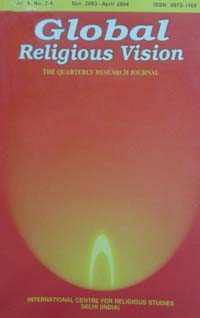






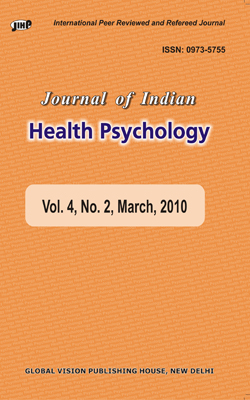
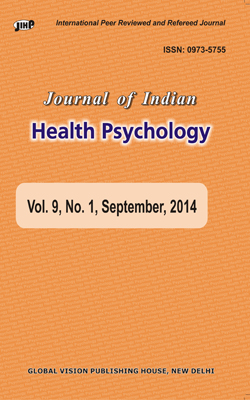
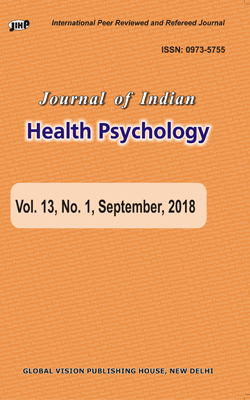
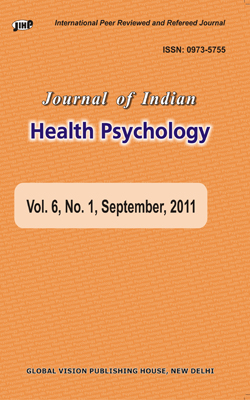
Reviews
There are no reviews yet.